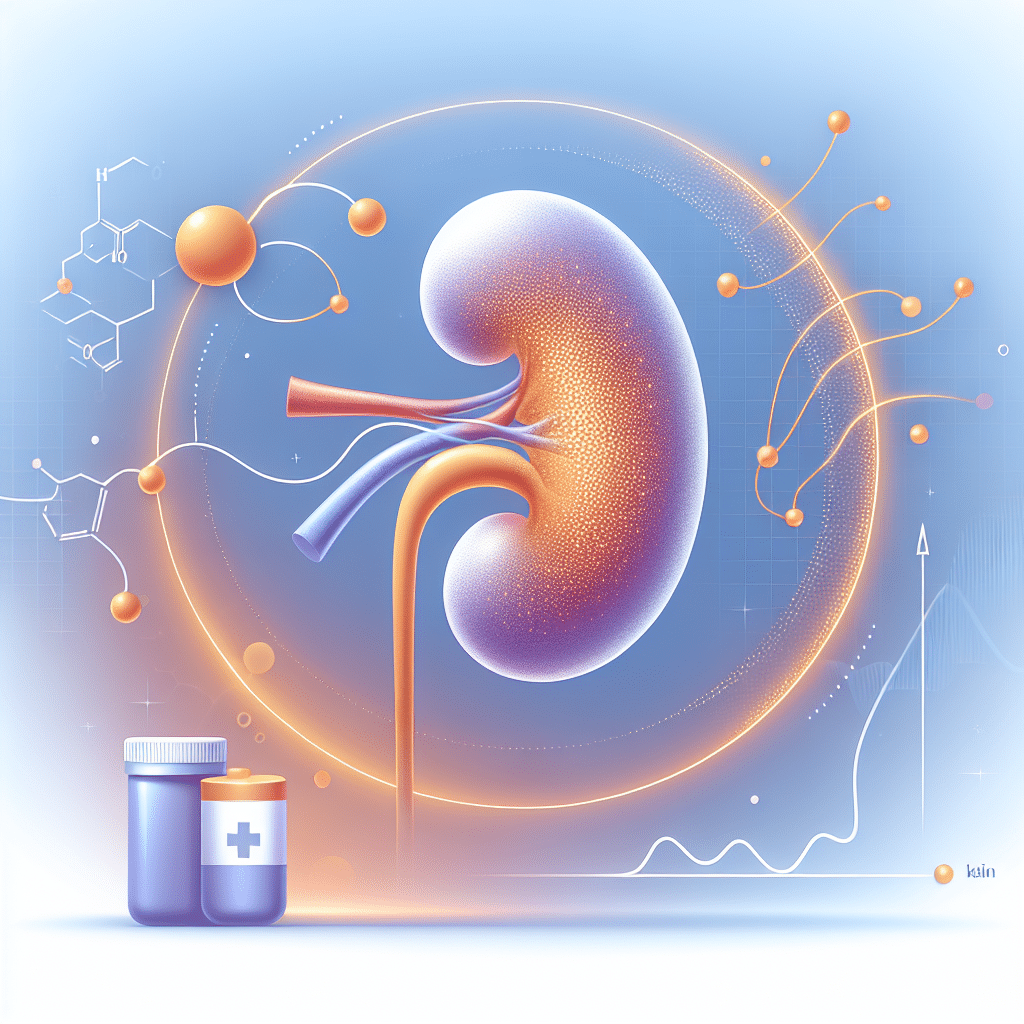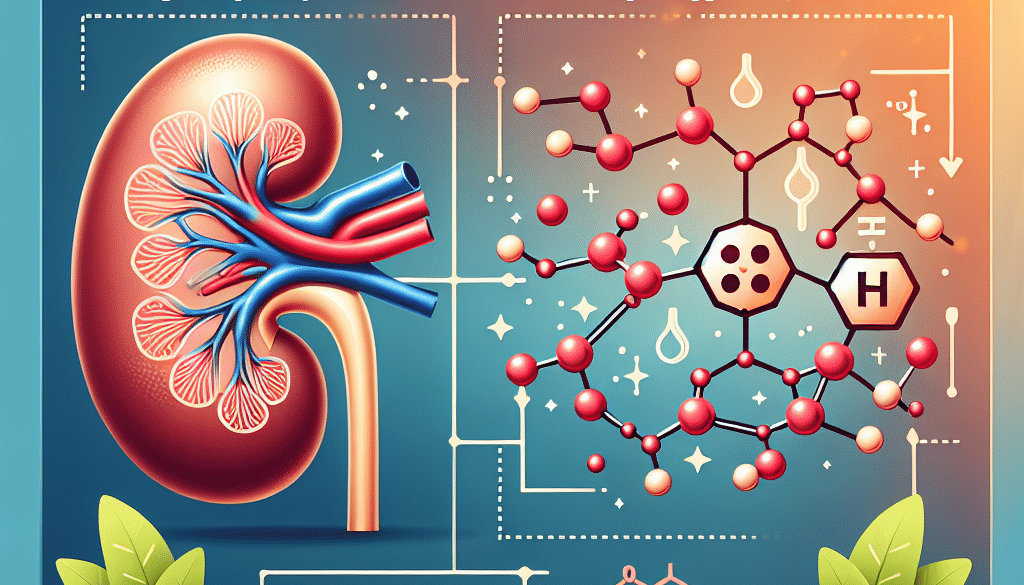Is Hydrolyzed Protein Easier On Kidneys? The answer
Table of Contents
- Hydrolyzed Protein and Kidney Health: A Detailed Analysis
- Understanding Kidney Function and Protein Metabolism
- What is Hydrolyzed Protein?
- The Case for Hydrolyzed Protein and Kidney Health
- Research on Hydrolyzed Protein and Kidney Function
- Hydrolyzed Protein in Clinical Nutrition
- Considerations for Individuals with Kidney Disease
- Case Studies and Examples
- Statistics and Data
- Conclusion: Is Hydrolyzed Protein Easier On Kidneys?
- ETprotein’s Hydrolyzed Protein Products
Hydrolyzed Protein and Kidney Health: A Detailed Analysis

Protein is a vital nutrient essential for the body’s growth, repair, and maintenance. However, for individuals with kidney disease, protein intake must be carefully managed. Hydrolyzed protein, which is protein that has been broken down into smaller peptides or amino acids, is often suggested as a more kidney-friendly option. This article explores whether hydrolyzed protein is indeed easier on the kidneys and delves into the science behind protein metabolism and kidney health.
Understanding Kidney Function and Protein Metabolism
The kidneys are critical organs that filter waste products from the blood, including those produced during protein metabolism. When protein is consumed, it is broken down into amino acids, which are then used to build new proteins or are converted into energy. The byproducts of this process, such as urea, must be eliminated by the kidneys. In individuals with compromised kidney function, reducing the workload on the kidneys can be beneficial.
What is Hydrolyzed Protein?
Hydrolyzed protein is created through a process called hydrolysis, where water molecules are used to break the peptide bonds in proteins, resulting in smaller chains of amino acids or individual amino acids. This pre-digestion process can make proteins easier to absorb and potentially less taxing on the kidneys.
The Case for Hydrolyzed Protein and Kidney Health
Several factors suggest that hydrolyzed protein may be easier on the kidneys:
- Enhanced Absorption: Because hydrolyzed proteins are already broken down, they can be absorbed more quickly and efficiently by the body, potentially reducing the production of waste products.
- Lower Phosphorus Content: Some hydrolyzed proteins have lower levels of phosphorus, which is beneficial for kidney health as high phosphorus levels can be harmful to damaged kidneys.
- Reduced Allergenicity: Hydrolyzed proteins are often less allergenic, which can be important for individuals with kidney disease who may also have food sensitivities.
Research on Hydrolyzed Protein and Kidney Function
Several studies have investigated the impact of hydrolyzed protein on kidney function. For example, research has shown that in patients with chronic kidney disease (CKD), a diet with hydrolyzed protein may help reduce the progression of kidney damage. Additionally, animal studies have indicated that hydrolyzed protein diets can lead to less kidney hypertrophy and lower levels of renal inflammation compared to intact protein diets.
Hydrolyzed Protein in Clinical Nutrition
In clinical settings, hydrolyzed protein formulas are often used for patients with kidney disease. These formulas are designed to provide adequate nutrition while minimizing the production of nitrogenous waste. The use of hydrolyzed protein in medical nutrition therapy for kidney disease patients underscores its potential benefits for kidney health.
Considerations for Individuals with Kidney Disease
While hydrolyzed protein may offer benefits for kidney health, it is essential for individuals with kidney disease to consult with a healthcare professional before making dietary changes. Factors such as the stage of kidney disease, other health conditions, and overall nutritional needs must be considered.
Case Studies and Examples
Case studies have documented the positive effects of hydrolyzed protein in individuals with kidney disease. For instance, some patients on dialysis have experienced improved nutritional status and better waste product management when consuming hydrolyzed protein supplements.
Statistics and Data
Statistical data supports the use of hydrolyzed protein for kidney health. Research indicates that patients with CKD who consume hydrolyzed protein may have lower levels of urea and creatinine in their blood, markers of kidney function.
Conclusion: Is Hydrolyzed Protein Easier On Kidneys?
In conclusion, hydrolyzed protein appears to offer several advantages for individuals with kidney disease, including enhanced absorption, potentially lower phosphorus content, and reduced allergenicity. While research supports the notion that hydrolyzed protein can be easier on the kidneys, it is crucial for patients to work with healthcare professionals to tailor their diet to their specific needs. As with any dietary change, individual responses can vary, and what works for one person may not be suitable for another.
ETprotein’s Hydrolyzed Protein Products
For those interested in exploring hydrolyzed protein options, ETprotein offers a range of high-quality protein products that may be suitable for individuals with kidney concerns. Their selection includes organic rice protein, pea protein, and other plant-based proteins that are hydrolyzed for better digestibility and absorption. With a commitment to non-GMO and allergen-free ingredients, ETprotein’s products are designed to meet the needs of a diverse range of consumers, including those with kidney health in mind.
About ETprotein:
ETprotein, a reputable protein and L-(+)-Ergothioneine (EGT) Chinese factory manufacturer and supplier, is renowned for producing, stocking, exporting, and delivering the highest quality organic bulk vegan proteins and L-(+)-Ergothioneine. They include Organic rice protein, clear rice protein, pea protein, clear pea protein, watermelon seed protein, pumpkin seed protein, sunflower seed protein, mung bean protein, peanut protein, and L-(+)-Ergothioneine EGT Pharmaceutical grade, L-(+)-Ergothioneine EGT food grade, L-(+)-Ergothioneine EGT cosmetic grade, L-(+)-Ergothioneine EGT reference grade and L-(+)-Ergothioneine EGT standard. Their offerings, characterized by a neutral taste, non-GMO, allergen-free attributes, with L-(+)-Ergothioneine purity over 98%, 99%, cater to a diverse range of industries. They serve nutraceutical, pharmaceutical, cosmeceutical, veterinary, as well as food and beverage finished product distributors, traders, and manufacturers across Europe, USA, Canada, Australia, Thailand, Japan, Korea, Brazil, and Chile, among others.
ETprotein specialization includes exporting and delivering tailor-made protein powder and finished nutritional supplements. Their extensive product range covers sectors like Food and Beverage, Sports Nutrition, Weight Management, Dietary Supplements, Health and Wellness Products, and Infant Formula, ensuring comprehensive solutions to meet all your protein needs.
As a trusted company by leading global food and beverage brands and Fortune 500 companies, ETprotein reinforces China’s reputation in the global arena. For more information or to sample their products, please contact them and email sales(at)ETprotein.com today.














